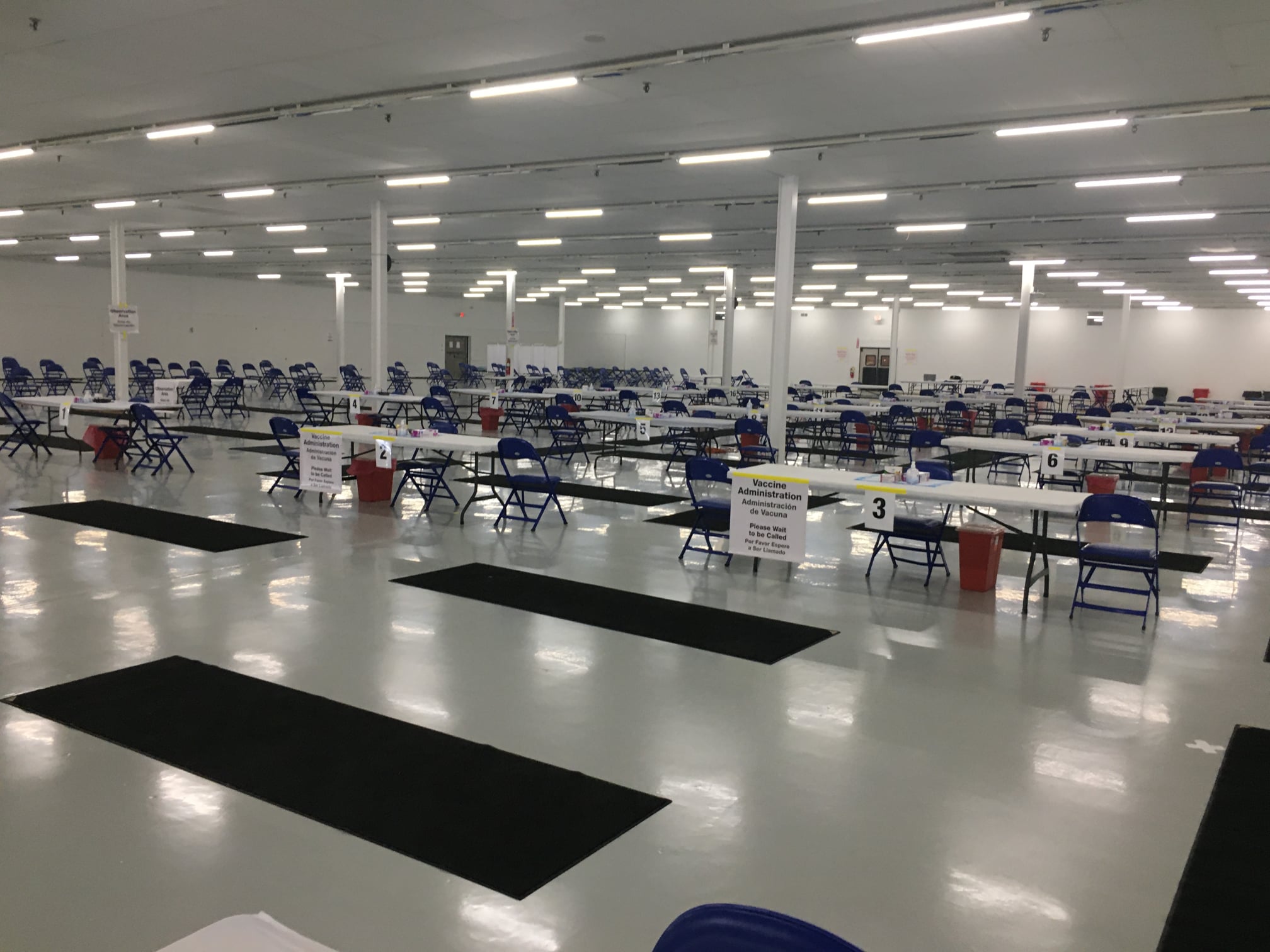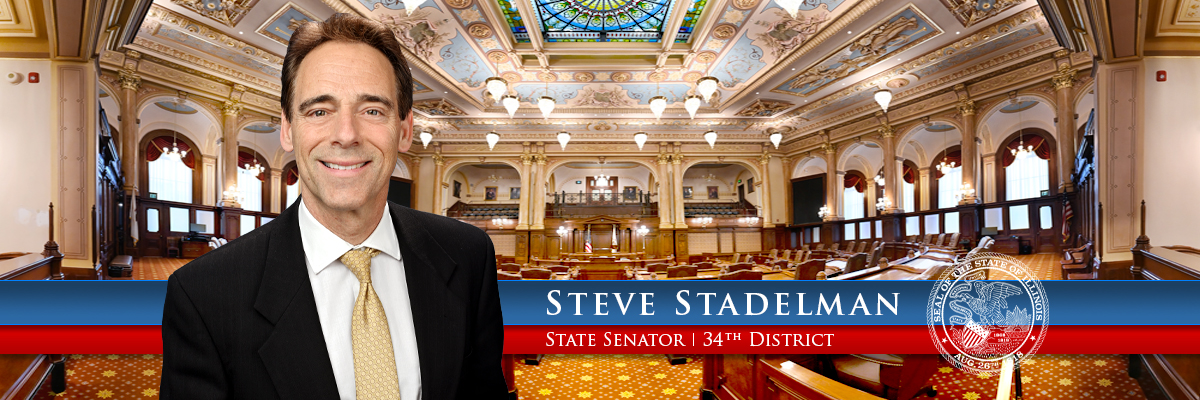Stadelman congratulates Rockford area school on biodiversity grant
- Details
- Category: Press Releases

ROCKFORD – Each year, the Illinois Department of Natural Resources selects schools across the state to receive grants for field trips. This year, Senator Steve Stadelman (D-Rockford) is congratulating Cherry Valley Elementary School’s 3rd grade class on being selected as a winner.
“This Biodiversity Grant Program provides an excellent chance for students to expand their education outside of the classroom,” Stadelman said. “I’m pleased that the students at Cherry Valley Elementary School were chosen for this great opportunity.”
The program allows schools to take students to state parks, museums, and other natural resource locations to gain hands-on experience with nature and conservation in Illinois.
Four classes selected for the grant will take a trip to Severson Dells Nature Center, which hosts environmental education courses in the 369-acre Severson Dells Forest Preserve. At the center, students have the opportunity to see first-hand some of what they are learning about in the classroom and expand their knowledge of Illinois and its natural resources.
More information about the Illinois Biodiversity Field Trip Grant Program is available from the IDNR Division of Education at
Stadelman urges local business owners to take advantage of PPP changes
- Details
- Category: Press Releases

ROCKFORD – State Senator Steve Stadelman (D-Rockford) is urging local business owners to take advantage of changes to the federal Paycheck Protection Program, which are meant to make the program more accessible to smaller businesses.
“The PPP program has been able to help keep many Rockford businesses afloat during these unprecedented times,” Stadelman said. “If you’re a sole proprietor or an independent contractor who did not qualify prior to these changes, I’m encouraging you to check again.”
The federal government recently improved the program’s formula used to calculate loans, making it easier for sole proprietors, independent contractors, and the self-employed to qualify for relief. It also established that student loan debt and prior incarceration will no longer prevent small business owners from obtaining relief.
“If you have a business with less than 20 employees, I’m urging you to apply as soon as possible,” Stadelman said. “The special window for these businesses to apply is only two weeks, so now is the time.”
The federal government has created a special window where only applications from businesses with less than 20 employees will be processed. It opened Feb. 24 and extends for two weeks.
More information about the PPP program, including how to apply, is available on the Small Business Administration’s website.
Stadelman: State committing over $700,000 to downtown building project
- Details
- Category: Press Releases

ROCKFORD – With the state’s Rebuild Illinois program in full swing, State Senator Steve Stadelman (D-Rockford) is highlighting a commitment made by the state to grant $772,000 in funding for a shovel ready construction project in downtown Rockford on Thursday.
“The redevelopment of downtown Rockford benefits the entire region,” Stadelman said. “The project next to the new library uses prime riverfront property, with a mix of dining, retail and residential space that promises to appeal to a diverse crowd.”
The project, funded through the Shovel Ready Infrastructure Capital Program, is set to prepare an underutilized site located at 227 N. Wyman in Rockford for redevelopment, with project activities including architectural engineering, site preparation and improvement.
The grant will help support Bush construction, the company developing the six-story riverfront property next to the new downtown Rockford Public Library with space for a restaurant, retail shops, and apartment units.
"I'm excited this project is shovel-ready and now will be supported with Rebuild Illinois funds,” Stadelman said. “I look forward to the opening of the new library campus.”
The Shovel Ready Infrastructure Capital Program is part of Rebuild Illinois, the state’s 5-year statewide construction program. You can visit the Department of Commerce and Economic Opportunity's website for updates on this and future Rebuild Illinois projects.
Stadelman: Mass vaccination site now in Rockford
- Details
- Category: News

ROCKFORD – As Illinois continues its vaccine rollout efforts, State Senator Steve Stadelman (D-Rockford) is highlighting a state COVID-19 mass vaccination site has come to Rockford.
“I was thrilled when I heard this announcement. This is fantastic news for residents in the greater Rockford area,” Stadelman said. “Ultimately, more than 1,300 residents will be able to receive this life saving vaccine each day when this site is at full capacity.”
Located at 1321 Sandy Hollow Road, the site opened Wednesday, Feb. 23, and is expected to administer up to 1,350 doses per day when it reaches maximum capacity. The governor has also committed to activating additional national guardsmen to assist with the site.
“It’s clear to me that sites like these will be key to ending this public health crisis, but we all still need to do are part until it’s our turn to get the vaccine, so please continue to wear a mask, wash your hands and watch your distance,” Stadelman said. “I’d like to thank the state and the Illinois National Guard for their continued commitment to Rockford and Winnebago County.”
There is no charge to receive the COVID-19 vaccine. Vaccinations are available only by appointment at this time. Eligible people can sign up for an appointment at www.wchd.org, and will be prompted to schedule their follow up appointment to receive their second dose when they come in for their first vaccination. Residents are encouraged to check back frequently for open appointments.
For more information on how to make an appointment to receive the vaccine, updates on the state’s plan and eligibility, and answers to frequently asked questions about the COVID-19 vaccine, go to coronavirus.illinois.gov.
More Articles …
Page 65 of 126




